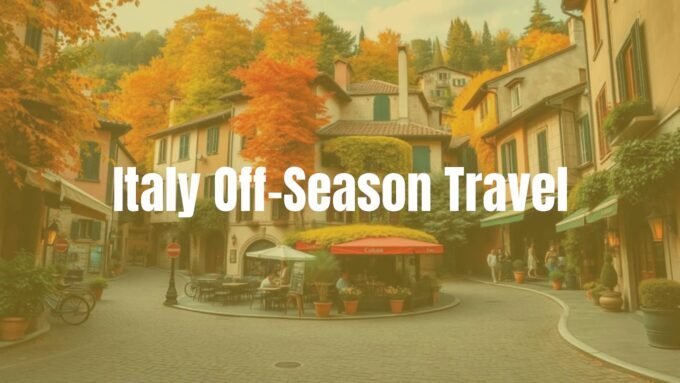Dreaming of Italy in the summer brings to mind bright plazas, old ruins lit by the sun, and the smell of fresh pasta in the air. But before you can sit with a cold drink by the Spanish Steps or wander the pretty lanes of Rome, you need to answer one basic question: What do you actually pack for Italy in the summer? The goal is to find a smart mix of comfort, style, and practicality-especially with the hot weather and unique culture.
Packing for Italy’s summer takes a bit of planning. You’ll want to stay cool and comfortable as you walk for hours, but also look good in a country where people value how they dress. This guide will help you know what to bring and what to wear, taking the weather, fashion, and must-have accessories into account for a smooth and enjoyable trip.

Italy Summer Weather: What You Need to Know
Italy’s weather in summer can be quite different depending on the area, but in general, it gets hot from June through September, with a lot of sunshine. Be ready for high temperatures, especially in big cities and the south. Some parts in the north or by the lakes might feel a bit cooler.
Knowing about these differences helps you pack the right clothes so you stay comfortable wherever you go.
Average Temperatures by Region
| Region/City | Average High | Average Low |
|---|---|---|
| Rome/Florence (Central) | ~88°F (31°C) | ~68°F (20°C) |
| Naples/Amalfi Coast (South) | Mid 90s°F (35°C+) | ~72°F (22°C) |
| Milan/Cinque Terre (North) | 65-85°F (18-29°C) | 55-70°F (13-21°C) |
Some cities can experience very hot days above 100°F (38°C), so plan for heat!
Humidity and Sunlight
Humidity can make the weather feel hotter, but it’s usually not as thick as in some parts of the United States. The sun is strong, especially since it rains little in the summer-Rome typically gets just 2-3 rainy days in July. Bring clothes that breathe and don’t forget sun protection, as you’ll likely spend a lot of time outside.
Choosing Luggage: Suitcase or Backpack?
Think about your luggage carefully. Italy’s older streets are often narrow and paved with stones, and old buildings may not have elevators. Carrying the wrong type of bag can make travel hard-especially if you have to pull it over cobblestones or up long staircases.
Your best option depends on your travel plans. Will you move between cities often or stay mostly in one area? Are you staying in big hotels or small local places with no elevators?
Suitcase vs. Backpack: Pros and Cons
If you aren’t backpacking through Europe or staying in hostels, a rolling suitcase is usually best. However, hard-sided suitcases that open flat can take up too much space in small hotel rooms. Many people prefer soft-sided luggage that opens from the top and is easier to work with in tight spaces. Travelpro is a popular, durable brand. Large backpacks are not usually needed for regular tourists and can be a pain, especially since many museums and attractions ask you to check large bags. For daily sightseeing, a small crossbody bag is best.
Tips to Pack Light
No matter what luggage you pick, pack as light as possible. Heavy bags can be trouble to carry, especially on steep streets or busy train stations. The best way to keep it light is to pick clothes you can mix and match. Choose pieces in neutral colors and light fabrics that dry quickly. Use packing cubes to keep things organized and make it easier to fit more in your bag.

Packing Tips for Summer in Italy
Packing for Italy isn’t just about tossing a few dresses into a suitcase. You need to plan carefully so you have what you need-without extra weight. The right clothes and accessories help you respect local customs and stay comfortable throughout your trip.
How to Avoid Overpacking
To keep from overpacking, lay out all the outfits you’re thinking of bringing, including shoes and accessories. Then cut back-see if one shirt works with several pants, or if a dress can be worn both daytime and at night. Try to pick clothes you can use in several ways. For most trips, a simple mix-and-match wardrobe is enough.
Choose Clothes That Work for Many Occasions
Bring items that are easy to layer and can go from morning until evening. For women, light dresses, midi skirts, and thin pants are great. For men, go with neat shorts, polo shirts, and light button-down shirts. Neutral colors make it easier to mix items. A scarf or pashmina is handy for warmth and can help you follow dress codes in churches.
Washing Your Clothes
Packing fewer clothes is easier if you do laundry while traveling. Some hotels have laundry services, but these can be expensive. Bringing a small bottle of laundry soap lets you wash socks or underwear in your sink-quick-dry clothes help a lot with this. In some places, you may have access to a washing machine. Even washing basics every few days means you can pack much lighter.
Keeping Your Belongings Safe
Theft can be a problem in busy cities, especially in touristy areas. Use a bag that closes with a zipper and keep it in front of you-avoid bags that are open or easy for someone to reach into from behind. Crossbody bags are safer than backpacks and let you keep money and your phone close. Only carry what you need out for the day, and leave any valuables in your hotel safe.
What Clothes to Pack for Summer in Italy
The best rule for packing clothes: keep it light, breathable, and put-together. Italians usually dress nicely, even when it’s very hot. Go for natural fabrics and simple styles-they’re comfortable to wear all day and help you fit in.
Tops: Shirts, Blouses, and Tanks
Pick tops made of cotton or linen. Bring a mix of short-sleeve shirts, pretty blouses, and smart t-shirts. One or two button-down shirts are great for times when you want more sun coverage or need to dress up a little. Keep in mind that simple tank tops are okay, but you’ll need to cover your shoulders at religious sites.
Bottoms: Skirts, Shorts, and Trousers
Pack a few skirts and dresses for hot days-midi skirts are especially popular and comfortable. If you want to wear shorts, pick longer, tidy styles. Light trousers like linen pants are great for both men and women, letting you stay cool and still look nice enough for more formal places. If you want to bring jeans, pick thin fabric and cropped styles rather than heavy denim. Leave ripped shorts behind if you want to blend in.
Dresses and Two-Piece Sets
Dresses make summer packing simple-they’re easy to wear, stylish, and comfortable in the heat. Bring a few that work for both day trips and dinners by changing your shoes or accessories. Matching sets in light fabric work well, too, and you can wear the pieces separately to have more outfit choices.

Swimwear
If you’ll be near the coast or at a hotel with a pool, pack at least one swimsuit. Classic designs and solid colors fit in better than flashy prints. Don’t forget a cover-up or light shirt to throw on when you leave the pool or beach. People dress up a bit more than in some other countries, even for swimming areas.
Layers: Jackets and Scarves
Evenings can get breezy or cool, especially by the water or in northern areas. Bring one light jacket, a denim jacket, or a cardigan. A scarf or shawl comes in handy both for warmth and to cover your shoulders at churches.
Dress Codes and Modesty
Many churches and places like the Vatican require covered shoulders and knees-no sleeveless shirts, shorts, or short skirts. Keep a scarf with you for these situations. Some nice restaurants may also prefer that you avoid jeans, sneakers, or casual clothes, so pack one outfit for fancy dinners.
What Shoes to Bring for Italy in Summer
Picking the right shoes is probably the most important packing choice. You’ll spend a lot of time walking, often on rough streets. Always bring shoes that are already broken in.
Walking Shoes and Sneakers
Comfortable sneakers are perfect for exploring cities. Choose neat, clean styles that go with many outfits-classic white sneakers are always a safe bet. Try to avoid bulky or very sporty shoes if you want to fit in better with locals.
Sandals and Flats
Bring sandals or flats for hot days-look for good support and cushioning. Leather sandals or comfortable slides work for both sightseeing and casual evenings. Avoid thin flip-flops, which can be uncomfortable on long walks.

Flip-Flops and Water Shoes
Only wear flip-flops at the pool or beach. Italians don’t wear these around cities or restaurants. If you’re planning to visit rocky beaches, water shoes will protect your feet and make swimming easier.
Dress Shoes for Evenings
If you’re planning to go to nice dinners or events, add one pair of dressy shoes. Wedges or fancy flats for women are a good choice, since heels can get stuck in cobblestones. Men can bring loafers or smart dress shoes-some restaurants do not allow sneakers in the evening.
Summer Accessories for Italy
A few good accessories will help you feel and look great all day. They also help you stay safe and comfortable in the sun.
Sun Protection: Hats, Sunglasses, Sunscreen
The sun in Italy can be very intense, so don’t forget big sunglasses and a sun hat. Pack sunscreen in your bag and use a high SPF, especially on your face. If you run out, you can always buy more in Italy-but start with a small bottle for arrival.
Practical Bags
| Type | Use |
|---|---|
| Crossbody Bag | City sightseeing, keeps items close and safe |
| Beach Tote | For beach or pool gear |
| Evening Bag | For dressy dinners or events |
Reusable Water Bottle
Summer is hot, so carry a water bottle to refill during the day. Many cities have free fountains to fill up, especially in Rome. Make sure your bottle doesn’t leak.
Travel Basics and Toiletries
Remember these travel basics and small items-they help your trip go smoothly and keep you connected and healthy.
Power Adapter
Italy uses Type F and L outlets, different from North America or the UK. Bring a plug adapter so you can charge your devices. Check if your electronics can handle 220V, especially things like hair dryers.
Power Bank and Long Charging Cable
Your phone will get a lot of use for maps and photos. A portable charger helps when you’re out all day. A long charging cable can help in hotel rooms where outlets aren’t close to the bed.
Packing Cubes and Laundry Bag
Use packing cubes to keep your clothes organized and tidy in your suitcase. A laundry bag separates dirty clothes from clean ones. If you have special clothes for evenings, bring a garment bag to keep them tidy.
Face Masks, Hand Sanitizer, and First Aid
While most restrictions are gone, it’s handy to have a few masks and small bottles of hand gel for busy places. A small first aid kit with band-aids, painkillers, and your prescription medicines is also wise.
Travel Insurance and Documents
Don’t travel without travel insurance-it can help if you get sick, lose your bag, or your trip is delayed. Keep your passport, insurance info, tickets, and copies of all your important documents handy.
Beach and Pool Packing
Italy has beautiful coasts and lakes, so you may want to swim, sunbathe, or enjoy the water. A few special items help make this easy and fun.
Swimsuits and Cover-Ups
Bring a couple of classic swimsuits and a simple cover-up for walking away from the water. Europeans often put on a shirt or sundress before leaving the beach or pool area.
Water Shoes for Rocky Shores
Pebbly and rocky beaches are common, especially around Cinque Terre and the Amalfi Coast. Water shoes prevent cuts and slips, so they’re worth saving room for if you’re headed to those spots.
Quick-Dry Towel and Beach Gear
A quick-dry towel is lighter and smaller than a regular one. Consider a beach tote to carry all your supplies, and bring a dry bag to keep phones or wallets safe from the sand and water.
Frequently Asked Questions about Packing for Italy in Summer
- Do I need a jacket at night? Yes. Late evenings, especially by the water or in the north, can be cool. Bring a light jacket or sweater.
- What should I wear for dinner? For most restaurants, choose a nice dress or smart trousers and a blouse for women, and neat pants and a shirt for men. For fancy places, avoid jeans and sneakers.
- Should I pack a swimsuit if I’m not going to the beach? If your hotel has a pool or you might be by a lake, bring one just in case.
- Are shorts OK in Italian cities? Yes, but stick to smart, longer styles. Always cover your knees and shoulders when entering churches.
Complete Italy Summer Packing List
- Luggage:
- Soft-sided rolling suitcase (carry-on if possible)
- Small crossbody bag for daily use
- Beach or tote bag
- Packing cubes for sorting clothes
- Lightweight laundry bag
- Clothing:
- 3-5 lightweight tops (cotton or linen)
- 1-2 long-sleeve shirts (sun or church coverage)
- 2-3 casual or dressy dresses
- 1-2 pairs of smart shorts
- 1-2 pairs of thin pants
- 1-2 midi skirts
- Optional: 1 pair of thin jeans for cool days or flights
- One light jacket or cardigan
- 1-2 scarves or pashminas for covering up
- 1-2 swimsuits
- 1-2 swimsuit cover-ups
- Enough underwear and socks
- Pajamas
- Shoes:
- 1 pair comfortable sneakers or walking shoes (must be broken in)
- 1-2 pairs comfortable sandals or flats
- 1 pair of nicer shoes or wedges for evenings
- 1 pair flip-flops or water shoes (beach/pool only)
- Accessories:
- Packable sun hat
- Sunglasses
- Simple jewelry (avoid expensive items)
- Small umbrella (optional)
- Toiletries and Health:
- Face sunscreen (high SPF)
- Body sunscreen
- Aloe or after-sun lotion
- Travel toiletries or buy locally
- Small first aid kit (band-aids, painkillers)
- Personal medications
- Hand sanitizer
- Bug spray
- Electronics:
- EU plug adapter
- Portable phone charger
- Long charging cable
- Headphones
- Camera & spare memory cards if needed
- Documents and Money:
- Passport (and visa if needed)
- Printed and digital copies of key papers
- Travel insurance details
- Debit/credit cards (tell your bank before you travel)
- Small amount of Euros
- Other:
- Reusable water bottle
- Small backpack/day bag
- Travel pillow and sleep mask (for flights and trains)
- Book or e-reader
- Pen and small notebook
With this list, you’re set up for a stress-free and comfortable time in Italy-able to enjoy every moment, look good, and feel great. Pack smart and have a fantastic trip!












Leave a comment